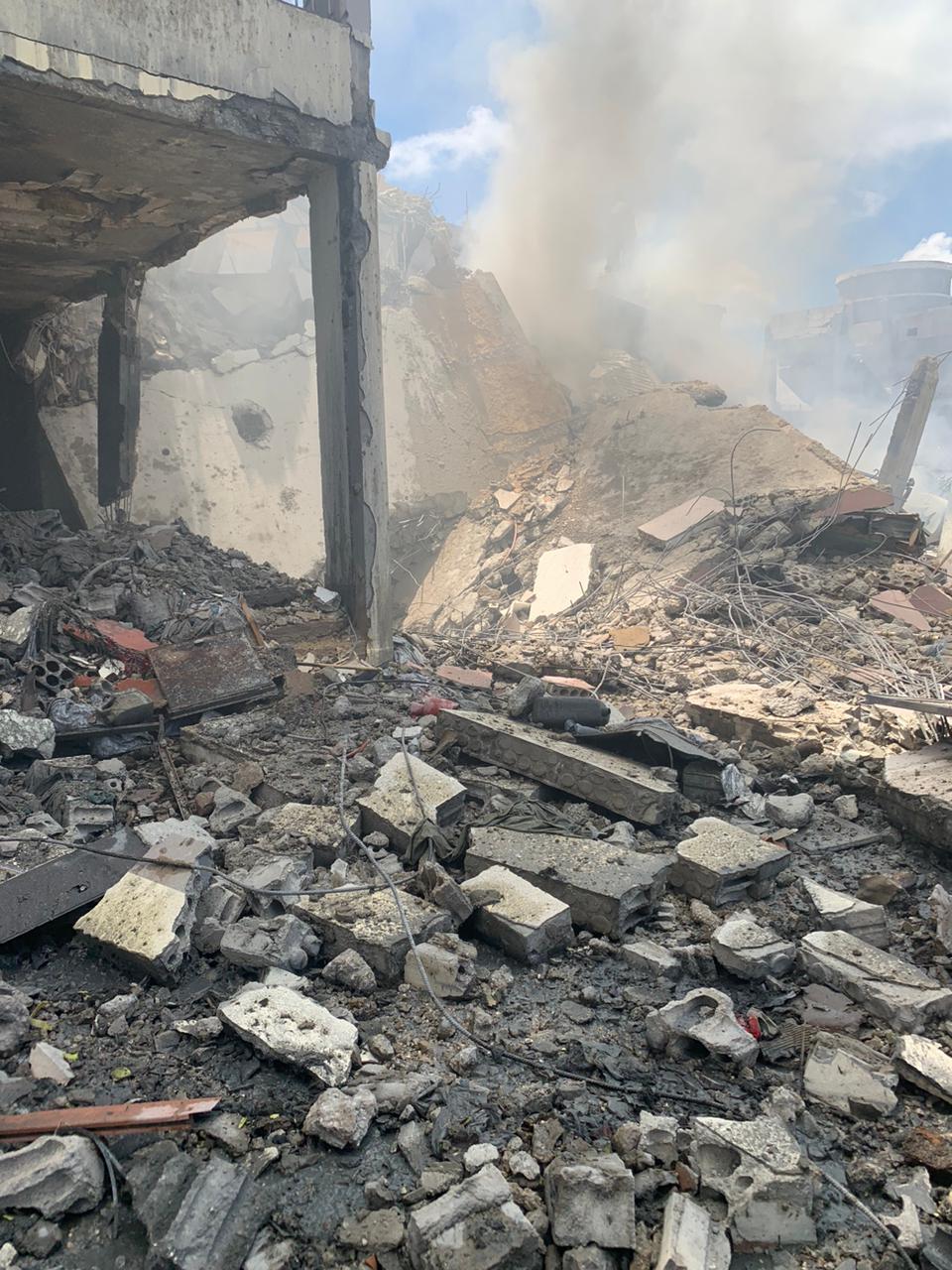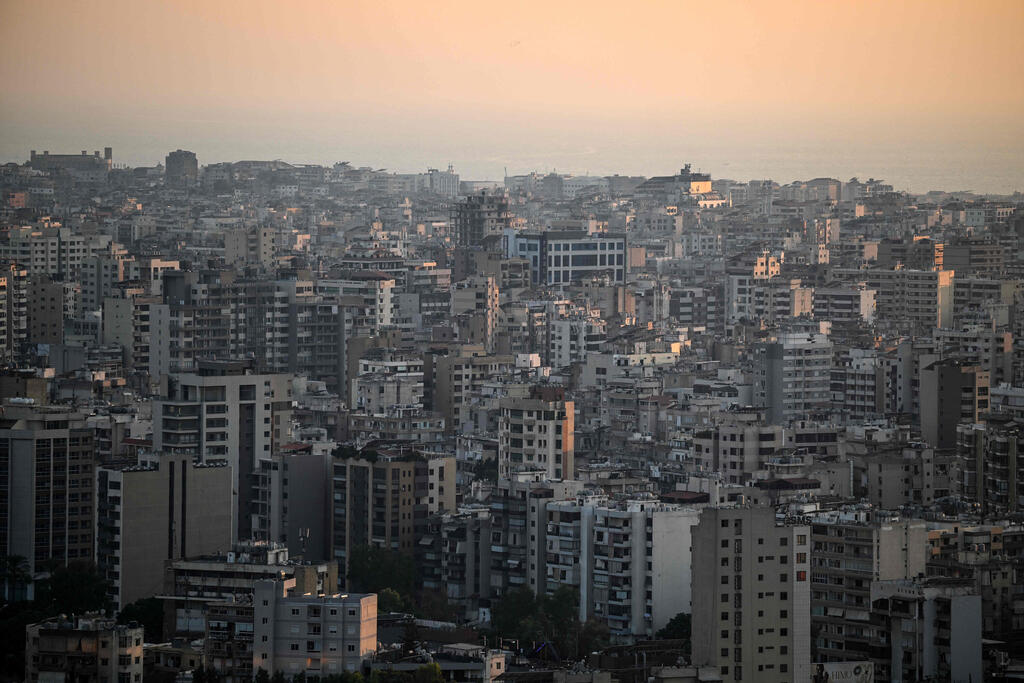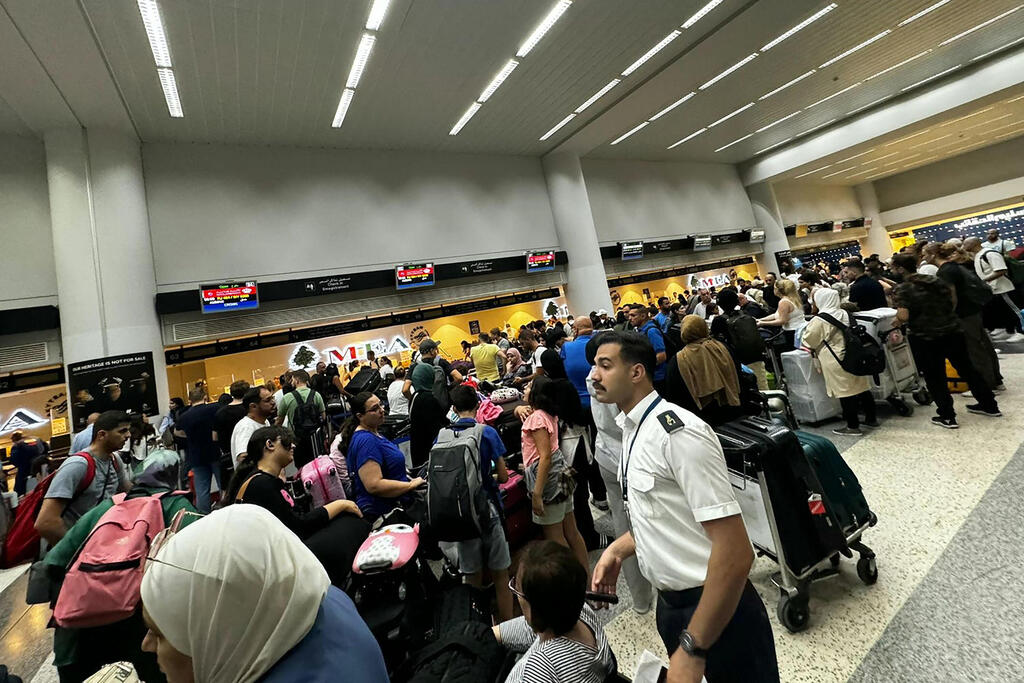Getting your Trinity Audio player ready...
Hezbollah drones flying over northern Israel
Multiple alarms sounded across the Upper Galilee on Saturday as several Hezbollah drones breached Israeli airspace near the Sea of Galilee, prompting the activation of air defense systems.
Sirens were heard in communities such as Sasa, Kfar Hoshen, Merom HaGalil Regional Center, Shefer, Amirim, Ein Kamonim, Meron, Or HaGanuz, Parod, Bar Yochai, Kfar Shamai, Kadita, and as far as Safed and Rosh Pina.
Amid the alarms, the Israeli Air Force launched strikes on Hezbollah targets in southern Lebanon. Fires broke out in five locations in the Upper Galilee and the Golan Heights due to falling debris from interceptors, with firefighters actively working to extinguish the blazes.
Meanwhile, Lebanese media extensively reported on the deep panic felt around Beirut's Dahieh district, a Hezbollah stronghold in the Lebanese capital. Over ten days have passed since the dramatic assassinations of Hezbollah military chief Fuad Shukr in Beirut and Hamas politburo leader Ismail Haniyeh in Tehran. While Israelis seem to exhibit some indifference to the threats of retaliation, residents in Lebanon and Iran remain fearful of potential repercussions, with reports indicating that Iranian President Masoud Pezeshkian is concerned about a severe response from the Revolutionary Guards against Israel.
In recent days, Israeli fighter jets have intentionally broken the sound barrier over Beirut multiple times, generating powerful sonic booms that rattle the Lebanese capital. The practice is meant to send a message to Hezbollah and residents about the IDF's ability to inflict destruction if provoked. Videos shared by Lebanese citizens over the weekend showed Israeli jets again breaking the sound barrier over the city.
While Israeli officials anticipate that Hezbollah will retaliate for Shukr's assassination before Iran does, Lebanon's Al Jadeed channel reports that Arab officials have reached out to the terrorist group, urging them to delay any action against Israel until after August 15, when hostage deal negotiations are scheduled to begin.
This request aims to prevent Hezbollah from being blamed for disrupting the talks. Hezbollah has not issued a definitive response. Meanwhile, international efforts are underway to temper Hezbollah's reaction to avoid giving Israel a pretext to escalate the conflict.
Israeli fighter jets flying over Beirut
The fear among Beirut residents is evident in media reports from all over the Arab world. The Arabic-language Independent featured an article by Lebanese journalist Tony Boulos, describing how Shukr's assassination plunged Dahieh residents into anxiety and fear. Boulos noted that the belief that Beirut would remain outside Israel's target list has shifted, particularly since Dahieh is the central Hezbollah hub, housing the group's institutions and political and security leaders.
Boulos also highlighted the contrast between displaced Israelis receiving government assistance and Lebanese citizens lacking support from the state or Hezbollah, forcing them to use personal savings and sparking anger. The "displacement crisis" from Beirut has led to soaring rental prices in nearby towns, revealing societal divisions. Landlords are hesitant to rent to displaced individuals potentially affiliated with Hezbollah, fearing it could endanger their new neighborhoods.
Wajdi Murad, the head of Aley municipality in Lebanon, told Independent that the town has seen an influx of displaced people from Dahieh and southern Lebanon. He noted that landlords are limiting rental properties to one family per home, yet there was an instance where a landlord discovered over 20 people living in one house. A researcher cited in the article claimed that over 120,000 people have been displaced from southern Lebanon, and approximately 45,000 have fled Dahieh within days, driving up housing costs.
The article also addressed the dissatisfaction among Lebanese citizens with Hezbollah, noting that the perception of the group has changed since 2006 when it was viewed as a resistance force against Israel. Now, Hezbollah is seen as an extension of the Iranian Revolutionary Guards, with its wars driven by regional, rather than national, interests. Many blame Hezbollah for Lebanon's political and economic crises and its influence over the judicial system.
Dahieh under siege
Hezbollah-affiliated newspaper Al Akhbar reported that Dahieh has "entered a state of war before it has even begun." Residents have reverted to emergency plans made at the start of the conflict, despite believing they were outside the line of fire due to developments in the battle dynamics between Israel and Hezbollah.
According to Al Akhbar, many residents have already left the area, and a tour reveals "this is not the same Dahieh," with significantly reduced street activity. The wartime atmosphere is palpable in markets, where everything has ground to a halt. Residents are purchasing basic necessities and returning home. One vendor told a customer asking about restocking that it would only happen "after the war." The article also noted uncertainty about the start of the academic year.
As rental prices outside Beirut soar, many residents spend their days in Dahieh but sleep elsewhere. Some have packed bags in case of escalation. A sports club in Harat Hurayk, where Shukr's assassination occurred, closed after its owner moved to Baalbek, where attacks target fields and single-detached dwellings rather than buildings, and from where moving to Syria is quite simple. However, many lack the funds to relocate due to high rental fees outside the Lebanese capital.
While restaurants remain open, reports indicate that many establishments have seen a significant decline in footfall. Some restaurants claim no drop in clientele, attributing this to women not cooking due to war fears and people avoiding shopping trips.








